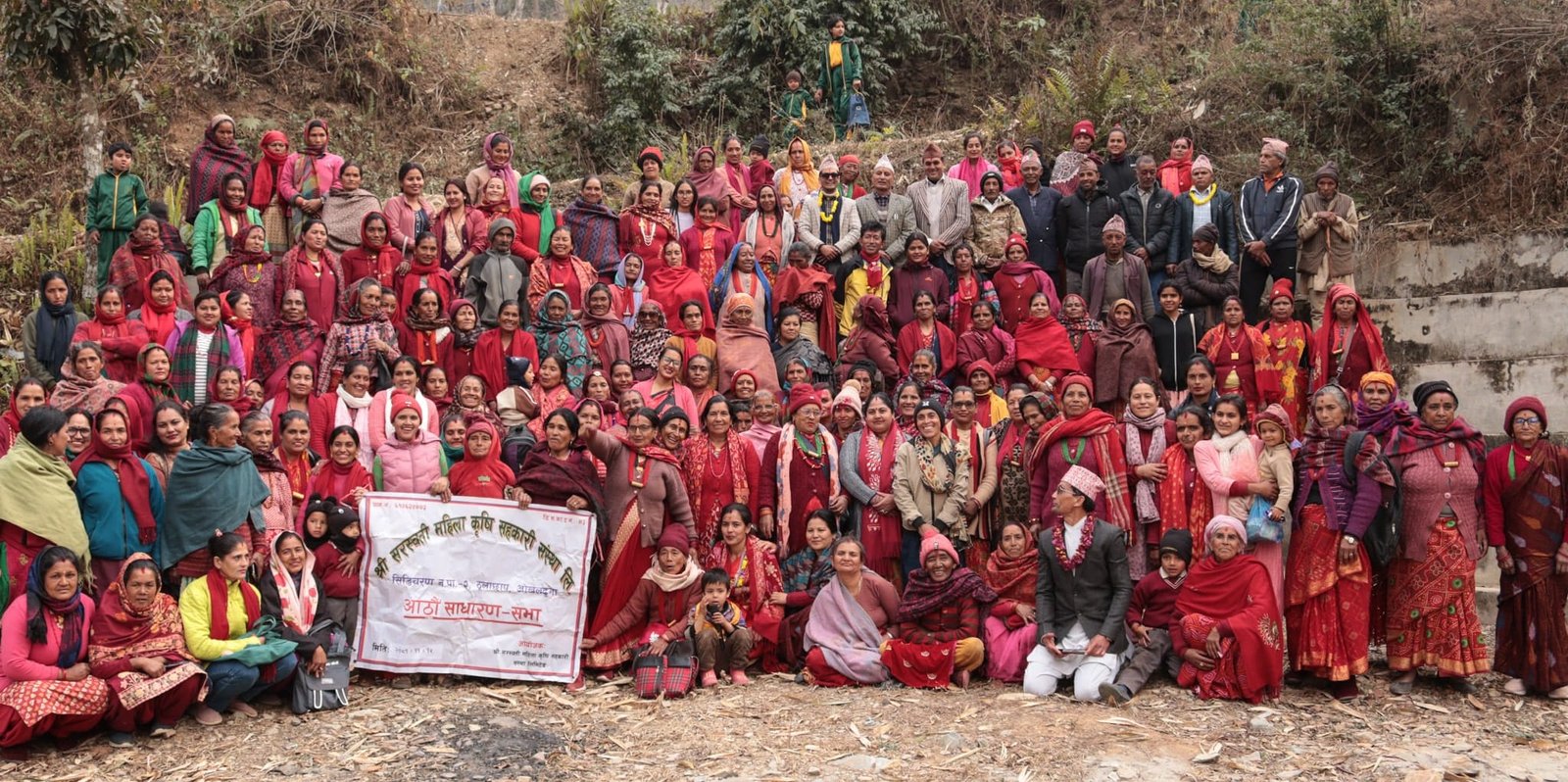January 21st, 2025
My name is Calypso Chosson. I am an ESC volunteer, working on a women’s empowerment project in Kathmandu within Volunteers Initiative Nepal (VIN), a local NGO. My team is more specifically working in Tarakeshwar, a marginalized and underprivileged community located on the outskirts of the capital.
According to me, patriarchy and its effect on women are one of the main obstacles the women are facing today in Nepal to evolve on a personal and professional level.
Indeed, the women are endorsing very specific roles and tasks in the family and in the community. At home, they must clean the house, cook three meals a day, grow the vegetables, do the laundry, take care of the animals when there are, raise the children, take care of the eldest people leaving in the house, etc. In other words, they are running the place. Sadly, it would be true if they didn’t have to ask their husbands for almost all the important decisions concerning the house or their schedule. In some communities, the mother-in-law also has an important position, by handling the daughter-in-law’s schedule at her convenience. A lot of women confessed that they were, at some point, bullied by their family-in-law, and especially by their mother-in-law.
When we asked the women to tell us something they like about themselves, they usually answered: “I am a good mother”, “I am good at cooking”, “I am good at taking care of the others” … They only define themselves through the family and their housewife role. They don’t have hobbies, and they usually don’t have a lot of free time or, when they have some, they don’t know how to use it by doing something only for themselves because no one ever taught them they could do so and how to do so.
In addition, there are multiple reasons why they can’t evolve professionally. First, a certain number of women is receiving a lower education comparing to men, especially because they get married at an early age and then have to be a housewife and drop off school. Some families are also facing financial issues, which have led them to sacrifice the education of the children. Secondly, women are being paid less than men for an equivalent work, no matter the work area. Last but not least, women need to complete the domestic work before doing anything else, which is already taking them almost all day. In fact, a lot of women we had the chance to encounter told us that they had to stop the business or the professional activity they started because they didn’t have the time to achieve all the household chores in time. However, this is not a general rule, since the women who have “the chance” to have daughter(s)-in-law can let her/them do the domestic work.
This patriarchal system is deeply rooted in the Nepalese society even though it is more frequent in the marginalized communities than in the big cities where women are enjoying more freedom. Some people would call it traditions and customs, but those traditions and customs often deserved the women.
As a volunteer, I therefore asked myself: “what can I do to support those women?”, “how can I contribute to their empowerment?”, “how can I erase centuries of discriminatory treatment towards them?”, “how can I educate women and men who always lived this way?” … I realized that it would be even more complicated to answer those questions during one of our workshops on self-esteem, when a woman said: “we are equal with the men nowadays”. Other women also affirmed that they think there is no gender inequality anymore in Nepal or, at least, in their community. It really broke my heart to hear that because I think they have no idea of what it means to be fully equal with the men.
In Europe, we are also trying to reach this ideal, but the living conditions of Nepalese women are nothing compared to the way the women are enjoying their rights and freedoms in Europe and elsewhere.
Before going in a humanitarian aid volunteering, the sending organization is making sure that we are aware of “white privileges” and other topics such as interculturality and the “white savior complex”. Besides, it is not less hard to witness ourselves poverty, gender inequality, gender-based discrimination, domestic violence…
My team and I are still figuring out how to support women’s immediate needs, but what we discovered so far is that they are expecting concrete actions from us and not theorical training on some westernized notions. This is why I truly believe that the support should start with accompanying the women in their search of income by training them, helping them networking, connecting them with the adequate stakeholders, supporting them financially etc., and once this first step is sustainably implemented and successful, only then we should incite them to realize how their professional experience made them grow on a personal level in terms of leadership, self-esteem, resilience, self-development…
My thoughts expressed so far are based on my two months’ experience in the field. I do hope it is going to evolve in a positive way by applying our recommendations and, maybe, support women to empower themselves in the long-term.
Project “Youth We Can!“
ESC Volunteering 2024/25
Calypso Chosson


 Member of
Member of